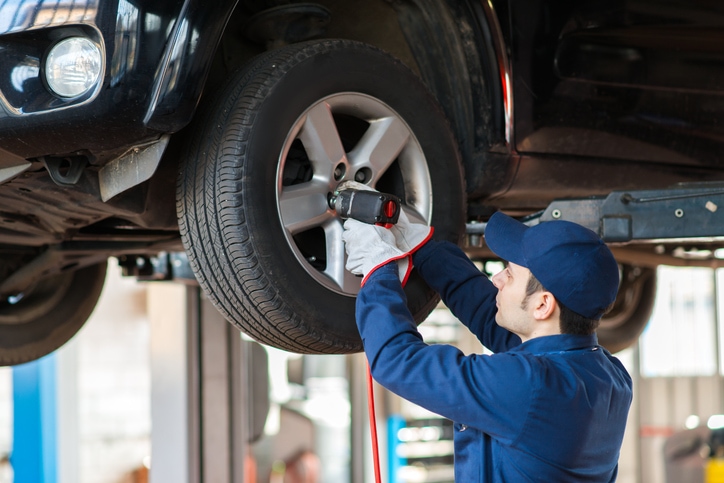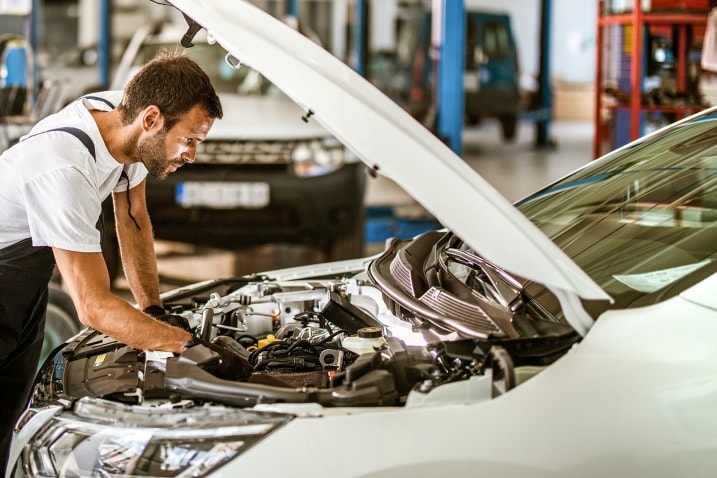All Categories
Featured
When your automobile experiences a major failure, the expense of repairs can be a difficult economic factor to consider. Whether it's the failing of a vital system like the engine or transmission, or the requirement for extensive repairs to various elements, understanding the factors that affect fixing costs can assist you make more educated decisions. Below, we outline the essential factors that add to the expense of significant cars and truck fixings.
![]()
![]()
![]()
Conclusion. A number of elements influence the price of major cars and truck repair work, including the type of repair work, the make and model of your automobile, the top quality of the parts used, labor fees, and the level of the damage. Comprehending these elements can assist you make even more informed decisions and strategy for the monetary ramifications of auto repairs.

- Kind of Repair. The primary aspect affecting the expense of cars and truck fixings is the kind of concern your lorry is experiencing. Some fixings are much more uncomplicated and budget-friendly, such as replacing a battery or alternator. Nonetheless, other repair work, like fixing a malfunctioning transmission or dealing with an extreme engine problem, can be much extra pricey due to the complexity and specialized labor called for. Certain systems in a vehicle, like the engine or transmission, call for even more time to detect and repair, which directly translates into greater labor costs. In addition, some problems, such as electrical issues or cooling breakdowns, could include fixing that boosts the overall price.
- Vehicle Make and Version. The make and version of your vehicle plays a major role in determining fixing expenses. Deluxe automobiles and high-performance automobiles like BMWs, Audis, or Mercedes-Benz often tend to have higher repair expenses due to their specialized components, progressed technology, and the know-how required for their repair service. The accessibility of components can likewise increase the rate; parts for foreign or uncommon versions are often extra expensive to resource than those for residential automobiles like Ford or Chevrolet. Furthermore, some cars, particularly those with distinct or sophisticated systems, may need customized technicians or devices, including in the general repair expense.

- Parts Quality and Accessibility. The quality of the parts made use of in the fixing significantly impacts the price. In some cases, less costly aftermarket parts may minimize the general repair service cost, however they might not provide the very same durability as OEM components, which can result in extra fixings down the roadway. If parts are hard to locate, it might take longer to complete the repair work, leading to higher labor costs.
- Labor Costs. Some fixings, such as engine overhauls or transmission repairs, might require numerous hours or even days of labor, significantly boosting the overall price. Labor prices likewise depend on the location of the repair service shop-- mechanics in city locations or high-demand places might bill higher rates due to the price of living and overhead.
- Level of the Damages. The extent of the damages is another crucial element affecting repair work prices. If the damages is restricted to one part of the vehicle, such as a damaged alternator or faulty brake pads, the repair will generally be less costly. Nevertheless, if the trouble is more severe and influences numerous systems, such as a transmission failure that additionally harms other components, the cost will certainly increase. Substantial damages might likewise require the substitute of numerous components, which boosts both the cost of components and labor.
- Car Age and Problem. The age and overall condition of your lorry play a considerable duty in the cost of repair services. Older cars and trucks are much more likely to experience damage, causing even more regular and potentially extra pricey fixings. As lorries age, specific components, such as the suspension or exhaust system, may end up being extra prone to failing. On top of that, locating parts for older models can be tough and costly, especially if the producer no much longer generates those parts. Properly maintained cars often tend to have reduced repair work costs due to the fact that their systems remain in better working problem, needing fewer and more economical repair services.
- Shop Area and Credibility. The repair work shop you select can additionally influence the price of your repairs. Additionally, repair shops that specialize in specific brands or types of repair services may bill much more for their expertise.

- Service Warranty and Insurance Insurance Coverage. If your vehicle is still under service warranty, significant repairs might be covered, which can substantially decrease your out-of-pocket expenditures. Some extended service warranties or solution agreements may also give protection for particular sorts of repair services, like engine or transmission failure. In addition, if the damages is triggered by a mishap or outside element, your vehicle insurance policy might cover the fixing costs, less any insurance deductible. Always get in touch with your warranty supplier or insurance policy company to see if the problem is covered, as this could save you a significant quantity of cash.
Conclusion. A number of elements influence the price of major cars and truck repair work, including the type of repair work, the make and model of your automobile, the top quality of the parts used, labor fees, and the level of the damage. Comprehending these elements can assist you make even more informed decisions and strategy for the monetary ramifications of auto repairs.
Latest Posts
A Historical Shoreline Location with Modern Delights
Published Apr 19, 25
1 min read
A Historical Shoreline Destination with Modern Delights
Published Apr 03, 25
1 min read
Host Your Perfect Occasion: Place Rental Choices for each Celebration
Published Mar 29, 25
1 min read